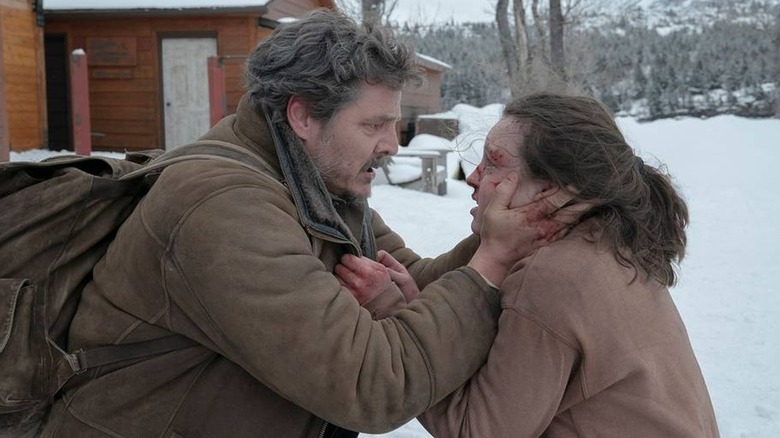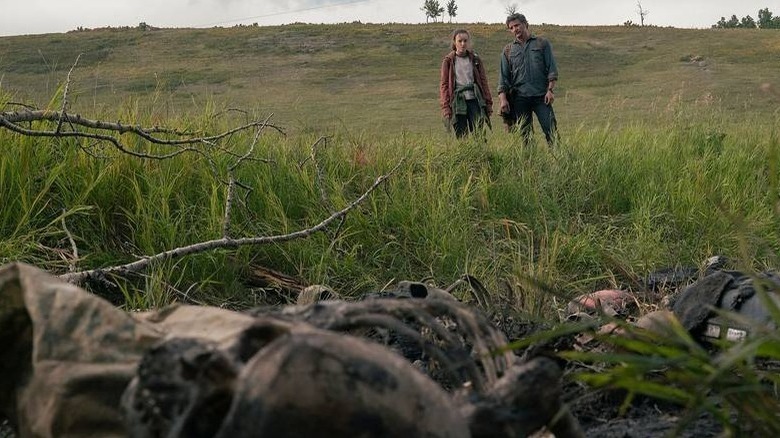How TLOU's Creators Amped Up The Show's Intensity By Showing Less Violence
In 21st-century entertainment, post-apocalyptic media has taken on many forms with various levels of success depending on the project. AMC's "The Walking Dead" helped to pioneer the genre with zombies as the main antagonist, with numerous movies and TV series taking the theme and running with it in its wake. This oversaturation was given a breath of fresh air with HBO's record-breaking "The Last of Us" by showing how zombie lore can still be done well thanks to the quality of the writing, acting, and filmmaking.
Based on the 2013 game of the same name, the program stars Pedro Pascal and Bella Ramsey in the lead roles of Joel and Ellie as Joel attempts to protect Ellie as they traverse the apocalyptic United States in a quest to help create a vaccine for the fungal pandemic turning people into ravaged maniacs. A hallmark of the video game was its penchant for extreme violence in addition to its visual effects and storyline, but the TV series takes some creative license in how it depicts this carnage. In fact, the creators of "The Last of Us" chose to amp up the show's intensity by purposefully showing less violence and gore.
Co-creator Craig Mazin says that limiting the violence onscreen makes it more significant
"The Last of Us" is an intense drama series, but there are some big differences narratively between the show and the game. One of the biggest aesthetic comparisons happens to be the approach to graphic violence the series depicts when compared to the PlayStation game. In the second part of Sony-Global's "Creator to Creator" program, series creators of "The Last of Us" spoke about how they approached depicting violent content in the television adaptation of the franchise.
Co-creator Craig Mazin described how some of the earliest conversations he had with his creating partner Neil Druckmann revolved around how to show brutality. He explained how violent actions moved the plot forward in the third-person adventure game, but if the same process had been tried in live-action filmmaking, the effect would have been desensitizing to the audience. Mazin added how this makes the violence insignificant when watching an acted and scripted program.
The showrunner then explained that focusing on the wide range of human elements in both Joel and Ellie was one way in which they made the moments of mayhem more significant. This is seen in Joel's moments of intense rage when he is triggered, which scares his child Sarah (Nico Parker) but activates a sort of shared intensity for rage in Ellie. The creators preferred this morally ambiguous approach to violent behavior, which became more visually significant over the non-stop gore that worked well for the gameplay.

